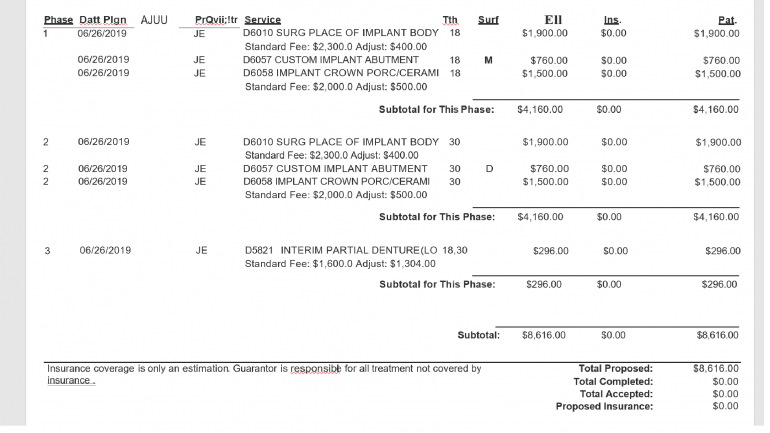
Dental Code D0422: Collection and preparation of sample material
Dental Code D0422 refers to the collection and preparation of genetic sample material for laboratory analysis and subsequent reporting. This code is specifically designed for dental professionals who are involved in the process of gathering genetic samples from patients for further analysis and diagnosis.
What does Dental Code D0422 mean? Detailed information about the procedure and the steps
Dental Code D0422 indicates the collection and preparation of genetic sample material for laboratory analysis and report. It involves the collection of genetic samples from patients, which are then processed, analyzed, and reported by a specialized laboratory. This code is primarily used in dentistry to aid in the diagnosis and treatment planning of certain oral conditions that have a genetic component.
Patient Evaluation and Counseling
Before proceeding with genetic sample collection, the dental professional evaluates the patient's medical and dental history. This step helps identify whether genetic testing is necessary and relevant for the patient's specific condition. Additionally, the dentist provides counseling to the patient, explaining the purpose, benefits, and potential risks associated with genetic testing. During the patient evaluation, the dental professional may also assess the patient's family history of oral health conditions and genetic disorders, as this information can provide valuable insights into the potential genetic factors at play. This comprehensive evaluation ensures that genetic testing is targeted and tailored to the individual patient's needs, maximizing the clinical benefits of the analysis.
Informed Consent
Obtaining informed consent is a crucial aspect of the genetic testing process. The dental professional ensures that the patient fully understands the nature of the genetic analysis, the potential outcomes, and the implications for their oral health. Informed consent involves discussing the privacy and confidentiality of genetic information and obtaining the patient's written consent to proceed with the testing. In the process of obtaining informed consent, the dental professional may also discuss the potential limitations of genetic testing, such as the possibility of inconclusive results or the discovery of unexpected findings with implications beyond oral health. This open and transparent discussion allows patients to make informed decisions about their participation in genetic testing and empowers them to actively engage in their oral healthcare journey.
Sample Collection
Once the patient has provided informed consent, the dental professional proceeds with sample collection. Depending on the specific genetic test required, different types of samples may be collected. Common methods include saliva collection, cheek swabs, or tissue biopsy. The dental professional follows strict protocols to ensure the integrity and quality of the genetic samples.
Sample Handling and Transportation
After collection, the genetic samples are carefully handled and packaged to maintain their stability and prevent contamination. Proper labeling and documentation are essential to ensure accurate identification throughout the transportation process. The samples are then sent to a specialized laboratory for analysis.
Laboratory Analysis
Upon reaching the laboratory, the genetic samples undergo various analytical procedures. These may include DNA extraction, polymerase chain reaction (PCR), sequencing, and other molecular techniques. The laboratory technicians employ state-of-the-art equipment and follow standardized protocols to ensure accurate and reliable results.
Data Interpretation and Reporting
Once the laboratory analysis is complete, the obtained genetic data is interpreted by qualified geneticists or oral healthcare professionals with expertise in genetics. The results are then compiled into a comprehensive report, which includes relevant information about the patient's genetic profile, potential risks, and recommended treatment strategies. The report is shared with the referring dental professional or healthcare provider.
Counseling and Treatment Planning
Based on the laboratory report, the dental professional discusses the results with the patient, providing further counseling and education about the implications of the genetic findings. The information gathered from the genetic analysis assists in developing personalized treatment plans, optimizing oral health outcomes, and minimizing the risk of genetically influenced oral conditions.
Summary of Dental Code D0422
Dental Code D0422 involves the collection and preparation of genetic sample material for laboratory analysis and reporting. The procedure includes patient evaluation and counseling, obtaining informed consent, sample collection, sample handling and transportation, laboratory analysis, data interpretation, and reporting. Genetic testing in dentistry can provide valuable insights into the genetic factors that contribute to oral health conditions, enabling personalized treatment plans and improved patient outcomes.
It is important to note that Dental Code D0422 should only be used by qualified dental professionals who have appropriate training and expertise in genetic testing. Genetic analysis in dentistry is a specialized field that requires adherence to ethical guidelines, patient confidentiality, and the highest standards of laboratory practices. By utilizing this dental code, dental professionals can integrate genetic information into their practice, enhancing their ability to provide personalized and effective oral healthcare.
Transform your budgetary game with Dr. BestPrice! Effortlessly compare dental care costs, make judicious choices, and elevate your oral well-being without denting your funds.
